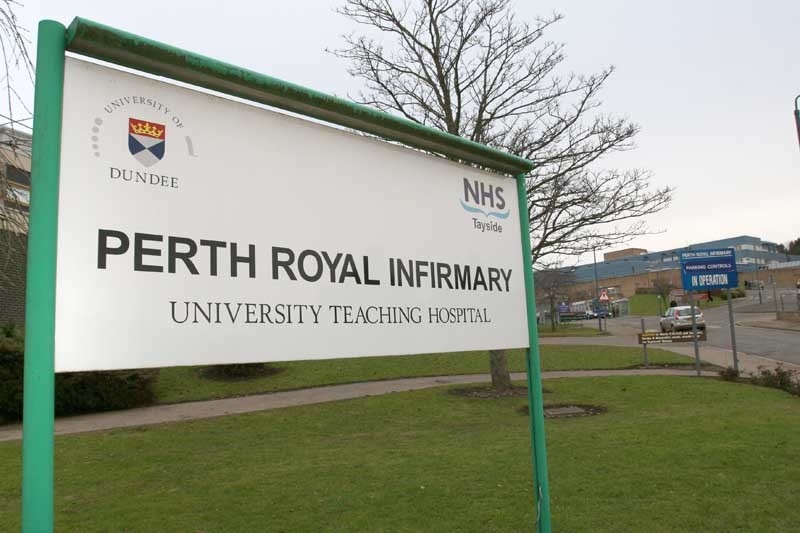NHS Tayside’s outbreak control team met yesterday to discuss the superbug clostridium difficile (C. diff) infections at Perth Royal Infirmary.
One person died after contracting the illness and three others have also been infected.
NHS Tayside last night said there were “no new cases” of the bug.
Officials have also stressed that, while C. diff was “a factor” in the death of the elderly patient it was not the “main cause.”
In each of the four PRI cases samples have been tested locally as positive for the potentially deadly infection.
They are now being further investigated at a laboratory to determine the strain.
Health board chiefs have warned this could take “some time.”
NHS Tayside has faced calls for an investigation into its handling of the outbreak but bosses insist there was “nothing to suggest” a wider outbreak after the first two patients tested positive.
All of the patients affected were receiving treatment on PRI’s Tay ward.
It was closed on Sunday after the fourth case was confirmed.
Meanwhile, health board staff have spoken to Tay ward patients and families to reassure them over action to minimise the risks.
Health chiefs have insisted all the cases were detected “very early,” meaning appropriate infection control measures were quickly introduced.Investigation callThe latest outbreak has placed Perth Royal Infirmary firmly in the national spotlight, and Scottish Labour have called for an investigation into the circumstances surrounding it.
Party officials pointed out it was not the first “significant” outbreak experienced in NHS Tayside.
Last autumn an outbreak of C. diff led to the deaths of five elderly patients at Ninewells Hospital in Dundee.
Eight people were infected despite a health board investigation later confirming that all the measures designed to prevent the spread of the infection were in place at the time of the outbreak.
Of those affected five died between October 21 and November 6 with two deaths attributed to C. diff.
It was considered a factor in the other three.
An investigation eventually traced the source of the infection to a patient who was known to have had the superbug when admitted to the ward.
The health board was subsequently criticised over its handling of the outbreak and an internal report, which emerged after a Freedom of Information request, showed that 18 areas for improvement were identified on the ward a month before.
